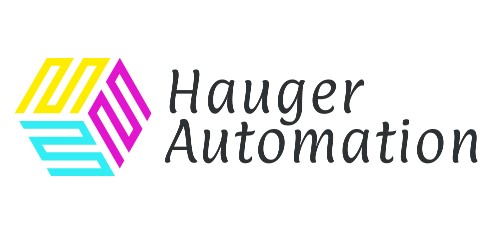Recent study on conspiracy ideologies in sub-Saharan Africa in the age of global capitalism, presented by Thomas Wegener, Founder of GrowExpress Ltd. in conversation with Erik Simon; Managing Director of GrowExpress Ltd, Nigeria.
Dirk Kohnert, the renowned scholar and long-time connoisseur of Africa, presents a recent study (by the GIGA Institute of African Studies) in January 2023, the contents of which are worth discussing and taking a deeper look at. The starting point is the general desire for a linear development of mankind – away from irrational patterns of explanation of the world through the recognition of empirical science. At the latest since the end of the Middle Ages, around 1500 and the idea of the Enlightenment, superstition should decrease and science should prevail. This has been only a pious wish for several decades. Conspiracy theories are on the rise – reinforced by opinion echoes and fake news on the Internet.
America, you have it (not) better
The German poet Goethe is often quoted as saying, „America, you have it better…..“ But is that true? Probably not. Starting with former President Donald Trump’s claims of a „Deep State“ in the U.S., the movement peaked with the Proud Boys‘ attack on the Capitol. Trump’s policies are based on creative ideas, conspiracies, such as when he repeatedly claimed that President Barack Obama was born in Africa. This shows how much Trump degrades countries in Africa, author Dirk Kohnert said in his detailed study. After all, one-third of Republican voters agreed with far-right QAnon conspiracy theories and other outlandish ideas. When U.S. media claimed a South African journalist was behind the 2019 global launch of QAnon, many Republicans compared Africa to Pandora’s Box.
Africa, the site of all occult?
But the fact that the black continent is associated with occult powers is no accident. There has been much debate in the social sciences for decades about whether African witchcraft beliefs are modern or not. Africans still value the occult, and modern techniques and tools have become an important part of it. The crisis of the modern nation-state is closely related to the global spread of neoliberal capitalism and the „invisible hand“ that determines its political, material and social conditions. Belief in witchcraft and zombies shows how African societies have been divided by alienation from labor, exploitation by capitalists, and the formation of classes. This is the thesis of Dirk Kohnert.

Medicine men and the Internet
People in Africa and the rest of the global South are not backward, but they do not have the chance to connect. Even cybercriminals in Côte d’Ivoire (Ivory Coast) who pose as Europeans on social media profiles and trick partners into falling in love with them are forced to seek advice from witch doctors on how to trick their victims. Given the prominence of social media around the world, this means that the virtual space of the global economy is not being sufficiently explored as a place where magic and witchcraft thrive. When you look at the cosmology of the occult in Africa and other places, you see that destructive forces are built into social relationships, just as in the U.S. election campaign and its connections to Fake News. African religions could provide a way for people to think about how to solve problems themselves, such as violence caused by witchcraft. This could also offer the rest of the world a new way to think about philosophical ideas and take emancipatory action to end conflict and bring people together. Given the worldwide popularity of social media, this shows that the virtual space of the global economy is not being sufficiently explored as a place where magic and witchcraft thrive.
Nigeria as a place of influence of the occult and conspiracy theories
The author knowledgeably describes the mechanisms for Nigeria as well, a country „buffeted“ by oil wealth and with a population of 240 million. Democracy is fragile; the 2023 Nigerian presidential election is fiercely contested, and many voters assume that almost any candidate would be willing to ally himself even with the „devil“ in order to succeed. Problems of regionalism, ethnicity and religious division exist. In addition, there is cultural diversity, political instability, corruption and nepotism, and economic growth despite its wealth of natural resources, especially oil from the Niger Delta. Against this background, Dirk Kohnert analyzes QAnon and other conspiracy ideologies for credibility with which to win over the population.
In early 2020, QAnon promoters also began targeting the media in Nigeria. The smear campaigns also showed that QAnon supporters were desperate to draw Africans into their movement. They tried to convince Nigerians to join their campaign by citing an African Child Policy Forum report released in November 2019, which found that child sexual exploitation was on the rise in Africa, including „tourism marriages“ between young girls and male tourists in North Africa and the online recruitment of young girls in West Africa „for pornographic films and bestiality.“ Many Nigerians were concerned that the smear campaign would have a negative impact on the country’s reputation because people might begin to attribute Nigeria’s problems to U.S. Democrats. This is especially true since Nigeria has long been considered an African stronghold for ritual killings. Allegedly, members of the Nigerian political elite regularly visit shrines to swear oaths, seek the blessing of a deity, or seek „spiritual protection“ from their political opponents. Much ado about nothing in some villages?
Countermovement – education and economic upswing
Many Western-educated Nigerians viewed the persistence and strength of the country’s traditional and informal social control systems as a repugnant contradiction to the country’s aspiration to become a „modern“ state with good governance. Tolerated as a private view and fads whose effects remain limited. Founder Thomas Wegener is optimistic. Effects for practical work are not measurable. GrowExpress Ltd., which he launched, manages an 800-hectare model agricultural estate about 200 km north of the megacity of Lagos, Nigeria. Erik Simon serves as managing director there. GrowExpress Ltd. helps smallholder farmers increase production while ensuring repayment of necessary investments. The approach lowers production costs for smallholder farmers through scaling and capacity utilization of tractors, cost reduction in procurement of seeds, fertilizers and other basic supplies. Recently, the property has been expanded to hold seminars and provide sleeping facilities for smallholder farmers. With this approach, yields are increased exponentially. This is achieved by optimizing agronomic practices to site-specific conditions, tailoring farm management, and a locally adapted supply chain program that connects smallholder farmers. In other words, moving away from the drive of all Nigerians to the already crowded cities to meaningful employment in rural areas. Economic development and openness to positive change are indicated. This development will intensify in the coming years and Nigeria, as well as other African countries, will catch up with Asia as a global growth engine. Whether with voodoo or without does not matter then. The world is complex. Humans try to find their way. Dangerous seducers have always existed; their containment will succeed, according to Erik Simon. And to quote Goethe: „If you have lied in speech and writing, it is a poison to others and to you.“
Link to the study worth reading in English: https://mpra.ub.uni-muenchen.de/115949/1/MPRA_paper_115949.pdf
Contact:
GrowExpress Limited
Kingsley Ekwueme
Managing Director – GrowExpress Ltd.
Cocoa House, Dugbe
200263 Ibadan
Nigeria
Tel: +234 7031135981
E – Mail: AtYourService@growexpress.biz
Internet: https://growexpress.org
Company Description:
GrowExpress Ltd. manages an 800-hectare estate about 200 km north of the megacity of Lagos, Nigeria. For more information, please visit: https://growexpress.org





